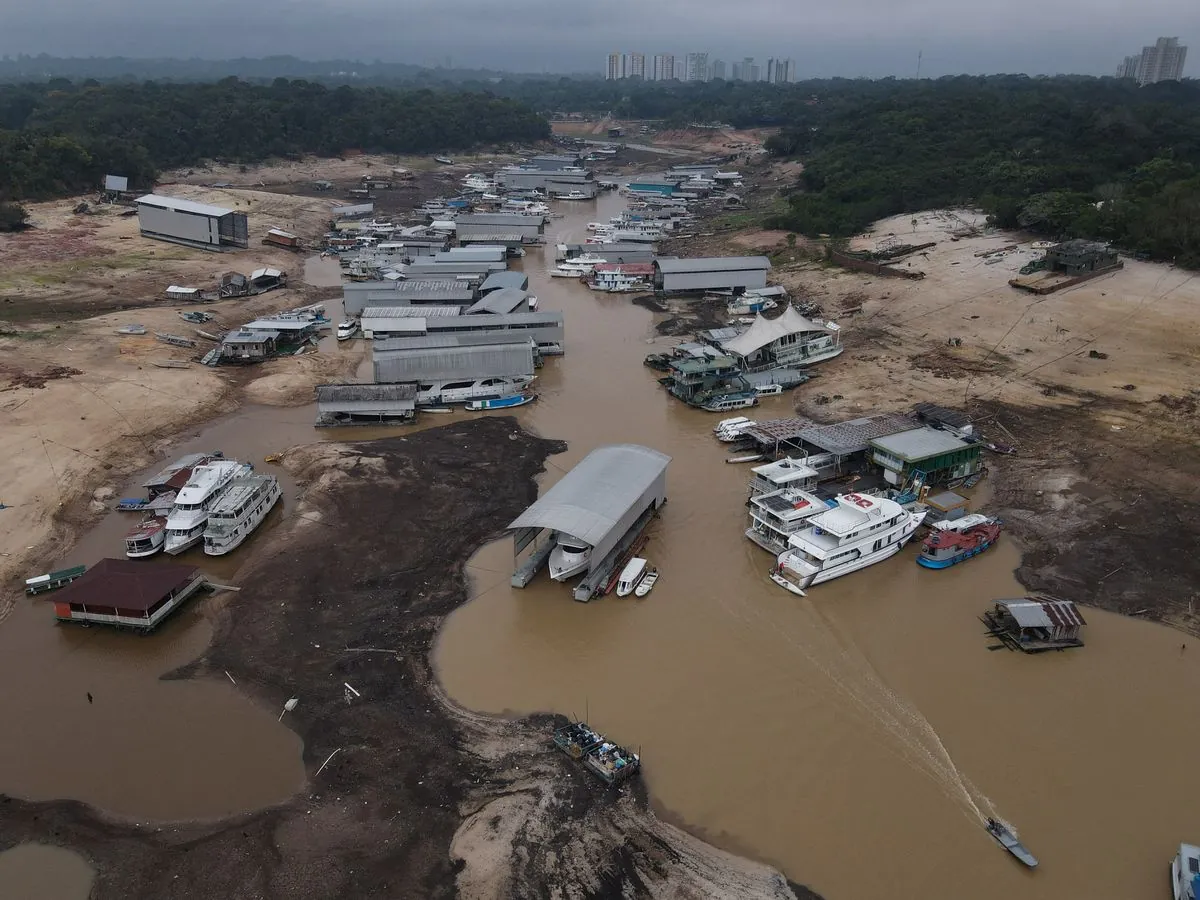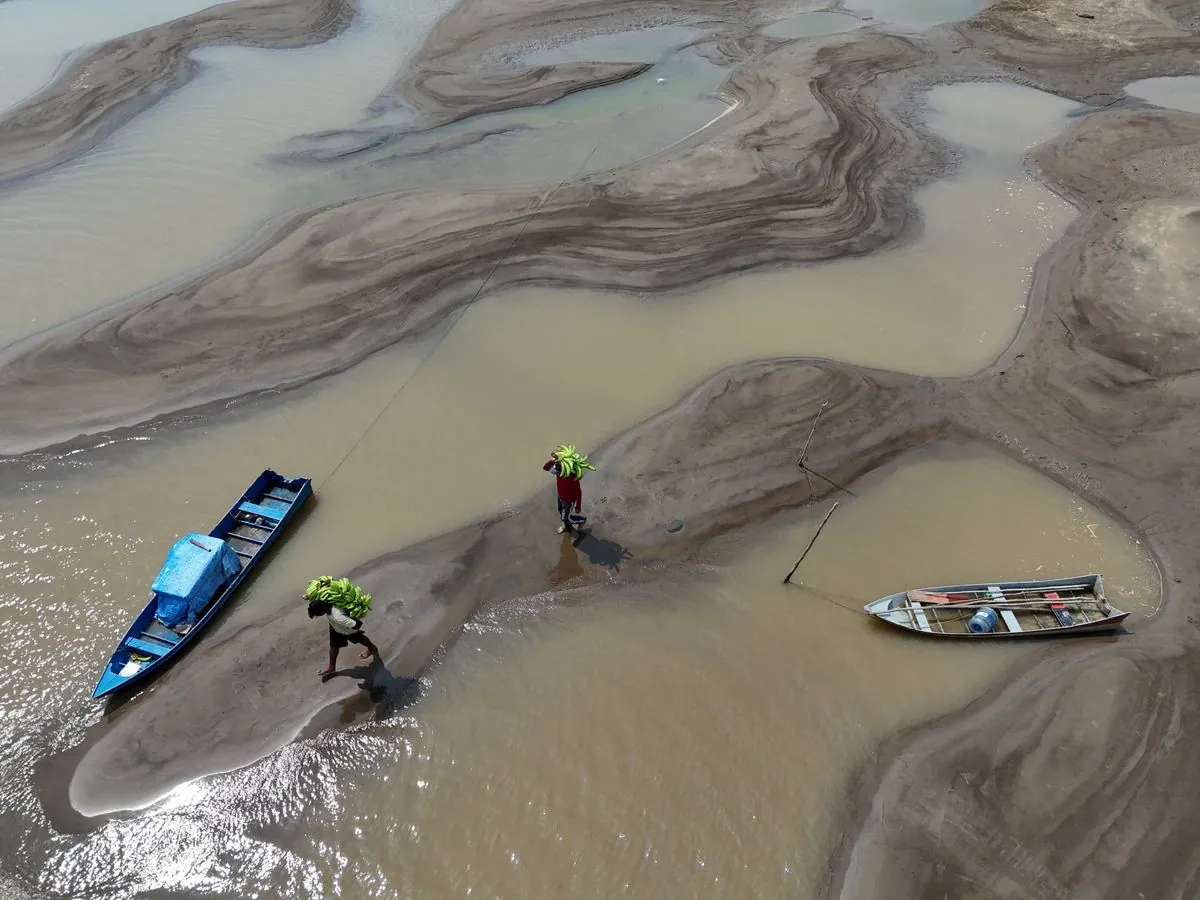Amazon Drought Crisis: Record-Low River Levels Disrupt Life in Brazil
Severe drought in Brazil's Amazon region causes record-low river levels, disrupting transportation and daily life. Local communities face challenges as the government responds to the environmental crisis.

In a significant environmental event, Brazil's Amazon rainforest region is experiencing a severe drought, causing unprecedented disruptions to local communities. The upper stretches of the Amazon River, the world's largest river by water volume, have reached record-low levels, severely impacting navigation and transportation of essential goods.
The town of Manacapuru, situated near Manaus, the capital of Amazonas state, is particularly affected by the drought. The Solimoes River, which flows into the Amazon River, serves as a crucial lifeline for the transportation of various goods in and out of the area. However, the current situation has led to boats becoming stranded on sandbanks, hindering the movement of local products such as fish, bananas, and cassava, as well as impeding the delivery of basic necessities from outside the region.

Local fishermen have voiced their concerns about the dire situation. Josue Oliveira, a fisherman, reported:
"We anchored the boat here, and it was stuck on dry land the next day. We had no way to move it."
Another fisherman, Francisco da Silva, described the situation as critical, noting that the water quality has begun to deteriorate:
"We'll have to drink it anyway. Nothing will get through."
The Amazon River is home to over 3,000 known species of fish, and its basin covers about 40% of South America. The current drought is not only affecting human communities but also poses a significant threat to the region's rich biodiversity.
According to the National Center for Monitoring and Early Warning of Natural Disasters (Cemaden), this drought is the most intense and widespread Brazil has experienced since record-keeping began in 1950. The situation has been exacerbated by a weak rainy season in the north-central region, rising atmospheric temperatures, and land-use changes that have replaced forest areas with pastures.
The Amazon rainforest, which produces about 20% of the world's oxygen and is home to approximately 10% of the world's known biodiversity, plays a crucial role in global climate regulation. The current crisis highlights the far-reaching impacts of climate change and deforestation on this vital ecosystem.
In response to the escalating situation, Brazil's Supreme Court has authorized the lifting of spending restrictions on wildfires and drought management in the Amazon and Pantanal regions. This decision, made on September 10, 2024, aims to address the economic impacts of these climate events and provide necessary resources for mitigation efforts.
As the crisis unfolds, the global community watches closely, recognizing that the health of the Amazon rainforest and river system has implications far beyond Brazil's borders, influencing global weather patterns and biodiversity conservation efforts worldwide.


































